In perfect
harmony
With 8,000 hectares of orchards containing 3 million apple trees: Pommeau de Normandie follows the rhythm of the ecosystems.
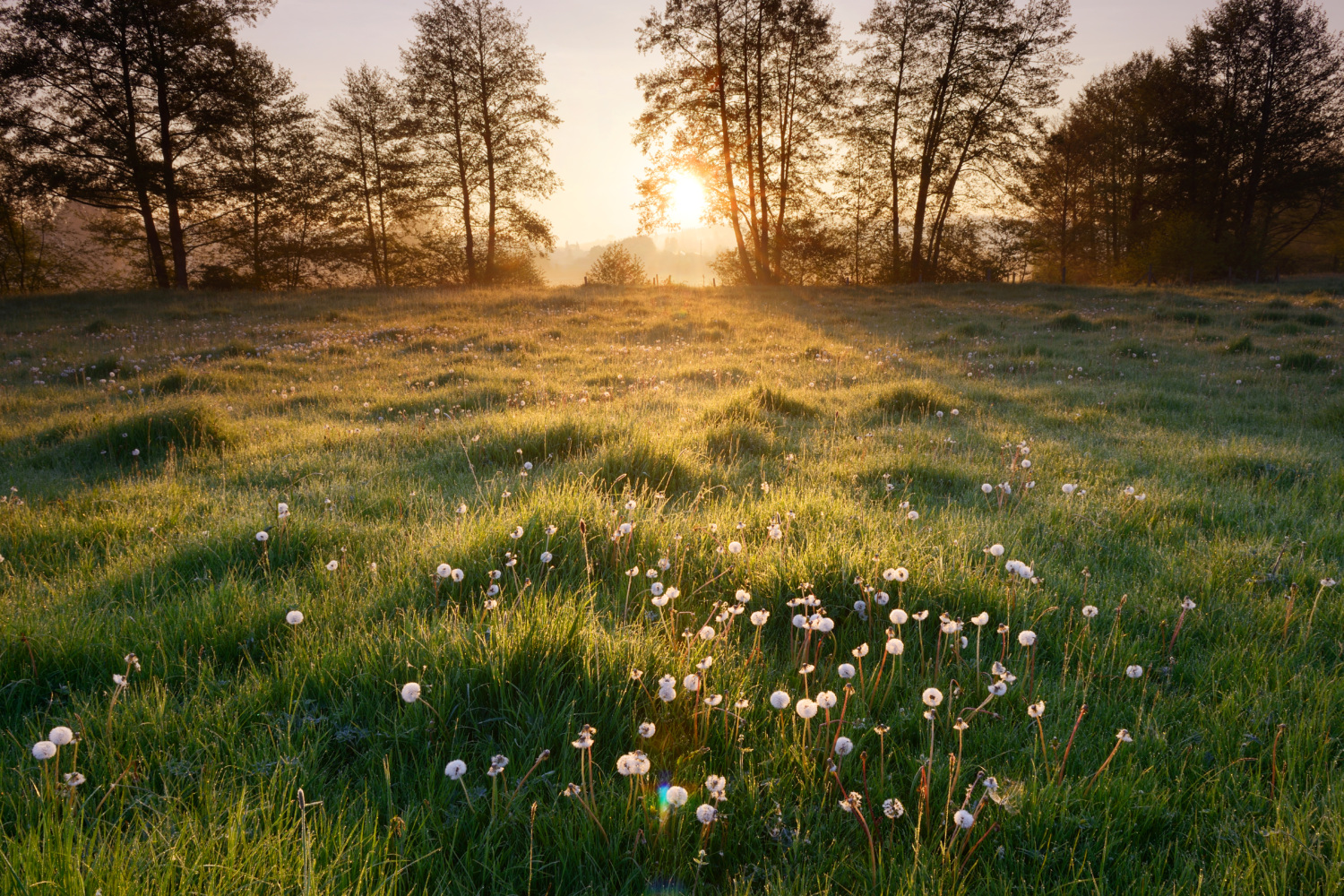
At a time of climate emergency, these millions of trees act as excellent captors of greenhouse gases
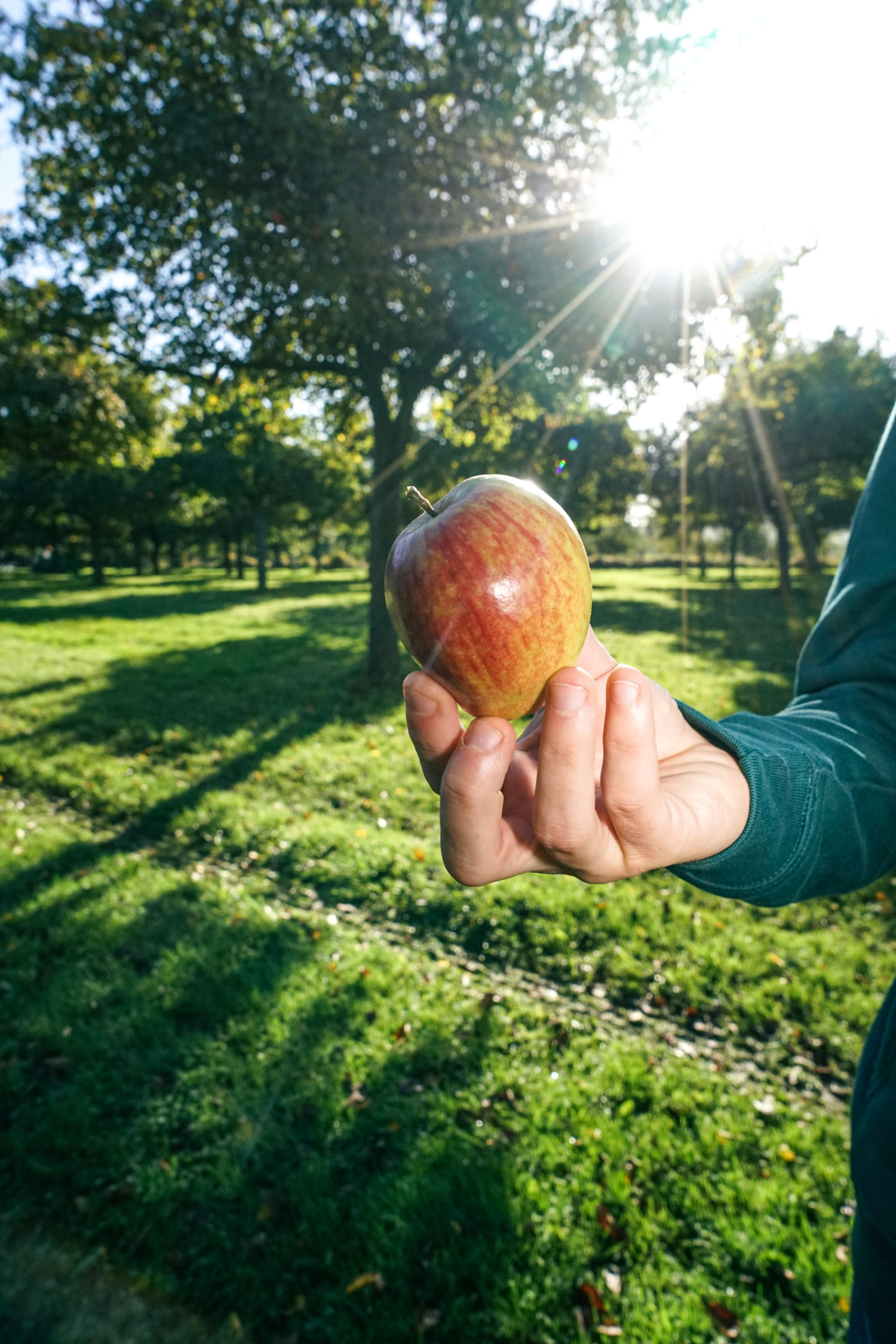
Some estimate that the carbon sequestration in a cider apple orchard is in the range of 35 to 50 tonnes of carbon/hectare over a 25-year period.
The wide diversity of fruit varieties also ensures the sustainability of the harvests and a high resistance to climate variations.
Orchards also offer benefits in terms of creating habitats for living organisms. Their horizontal and vertical structure provides a diversity of habitats and resources to encourage biodiversity: shelter in winter, reproduction, food.
The apple orchards of Normandy, essential to the production of Pommeau de Normandie, play a role in environmental preservation. Over a period of 25 years, they capture between 35 and 50 tons of carbon per hectare, according to certain estimates, thus making a positive contribution to the fight against climate change.
These orchards benefit from a wide variety of cider apples. This diversity ensures the sustainability of the harvests in the face of climate fluctuations, while also providing advantages for the local ecosystem.
With their horizontal and vertical structure, the apple trees create varied habitats and essential resources for local wildlife, serving as winter refuges, breeding grounds, or sources of food.
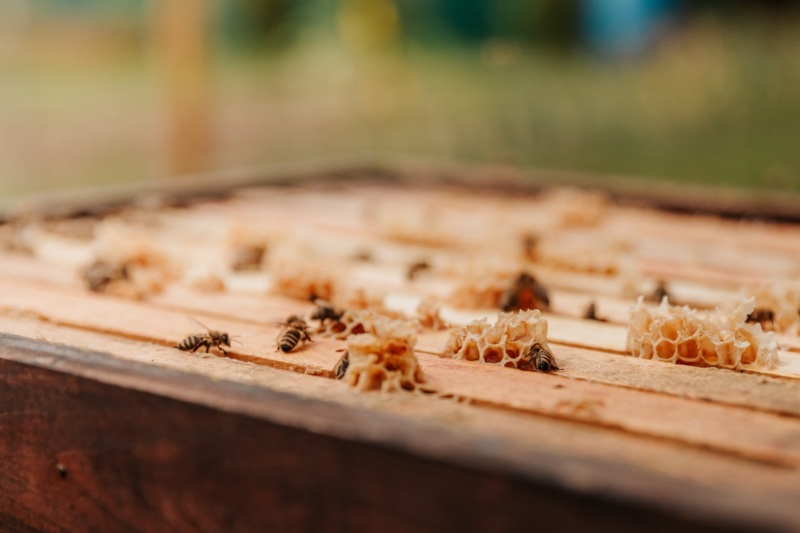
The apples are grown in the heart of the Normandy bocage, and several species of birds, notably tits, thrive here. These birds actively contribute to the natural predation of certain pests.
Observation centres also show that there is a greater presence of earthworms in an orchard than there is in a vineyard, for example, due in particular to the grassing of most of the plots. The soils are therefore richer and better able to absorb the rainfall.
Pollination is also fundamental to the orchards’ production mechanics. The apple tree cannot pollinate itself and each orchard must therefore rely on bees and other pollinating insects to ensure the long-term viability of its fruit harvest.
In spring, during the flowering period, the Normandy orchards are literally buzzing with activity!
The orchards’ ability to provide habitats for pollinators is estimated to be 4 times greater than that of field crops, particularly cereals.
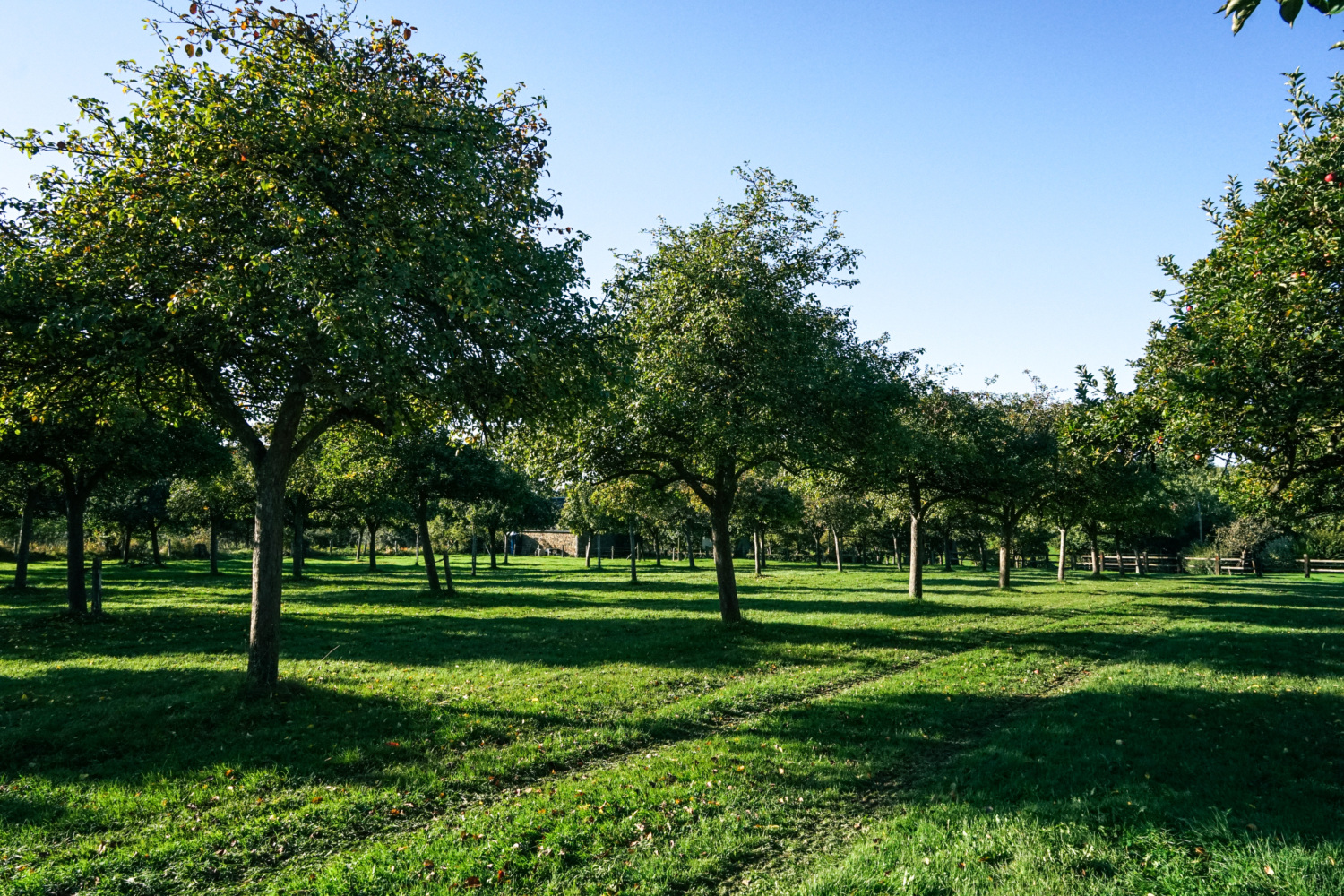
In terms of water usage, irrigation is prohibited in the orchards and the water consumed in the making of Pommeau de Normandie remains fairly low.
A large volume of water is used for the washing of the fruit, but this is very often in a closed circuit.
Lastly, orchards have various advantages when it comes to preserving the soil and combatting erosion: strong, durable root systems that enable a good fixation of the soil, permanent grass cover in the rows and inter-row areas, little ploughing of the soil, etc.
In France, water erosion is responsible for the loss of 1.5 tonnes / hectare of soil each year.
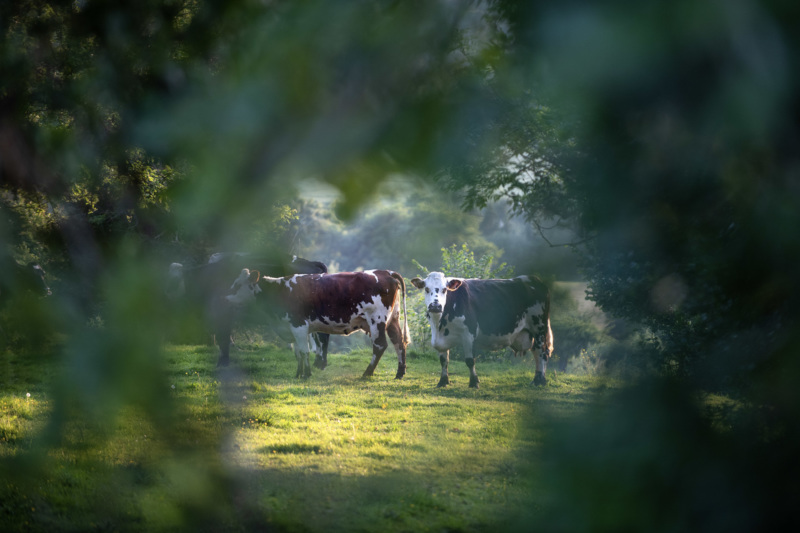
Whether certified organic or not, Pommeau de Normandie production prioritizes minimal use of phytosanitary products, with mixed farming practices supporting natural fertilization, notably through the presence of livestock.
Fruit loss remains relatively low throughout the production process, estimated at less than 5%. Producers are unconcerned with the aesthetic qualities of the fruit (such as shape, color, or uniformity), reducing the need for phytosanitary treatments aimed at controlling these aspects.
Finally, the processing of apples and pears generates various by-products, including pectins, animal feed, fertilizers, and materials for anaerobic digestion.


